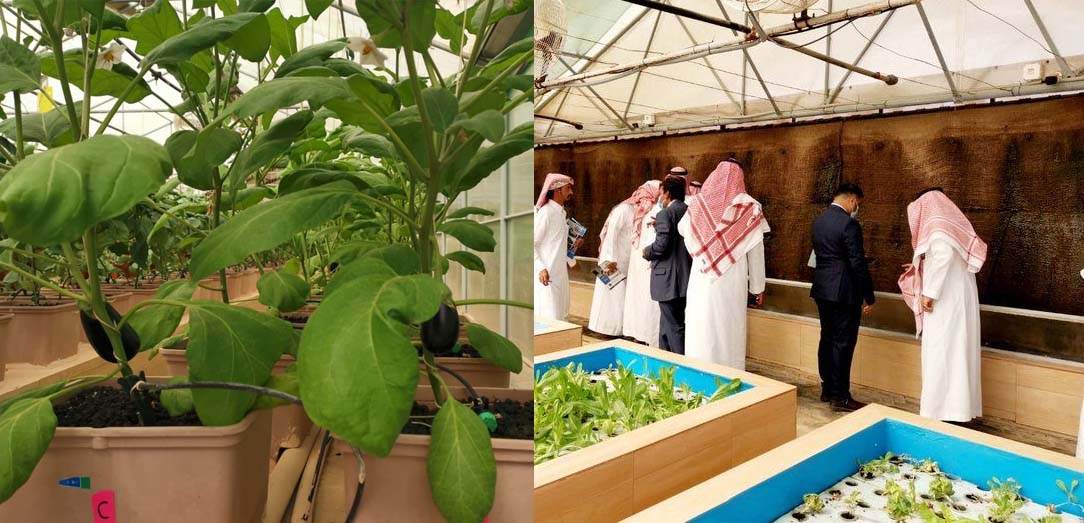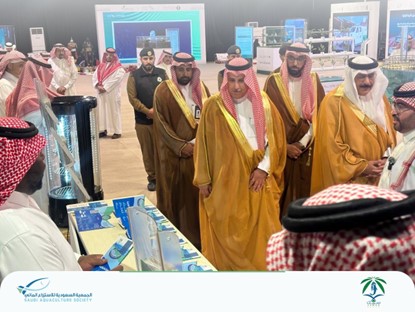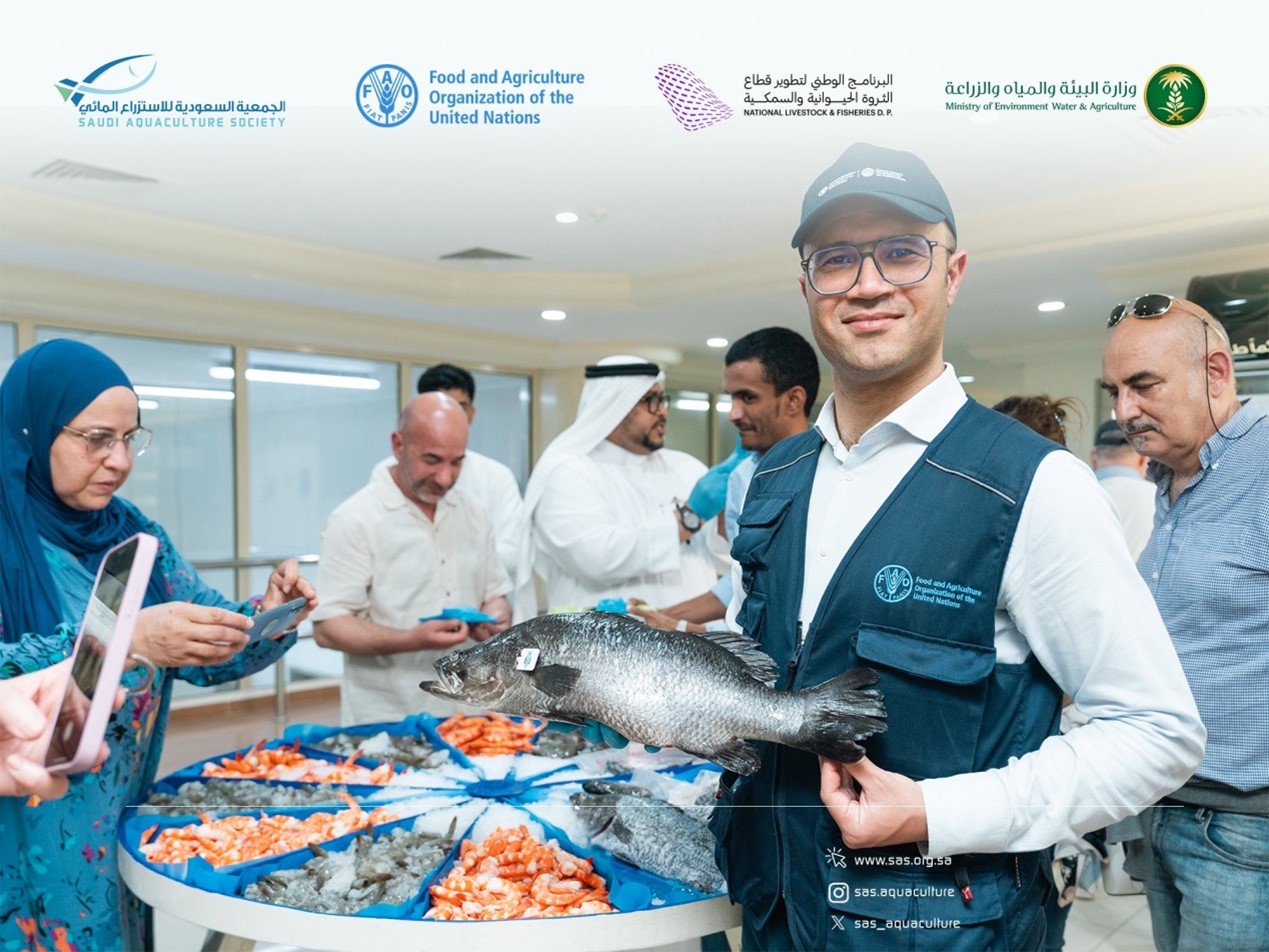
Agency of the Ministry of Environment, Water and Agriculture has managed to operate the first pilot project for producing vegetables using fully saline marine water for the first time in Saudi Arabia and the entire region, which is located at the headquarters of the National Fisheries Center on the Red Sea coast in Jeddah.
On September 03, 2020, the agency announced that its research unit project aims to ‘continue developing studies and experiments approved in agriculture on sea water, at the Fisheries Research Center in Jeddah affiliated to the Ministry’s branch in Makkah Al-Mukarramah region’ adjacent to the Red Sea, west of the Kingdom.
The project is characterized by relying on seawater in agriculture completely without using any other water sources. It also relies on seawater for cooling greenhouses, using pozzolanic wall for cooling, in addition to operating the entire system by relying on solar energy. The project aims to continue developing studies and experiments approved in agriculture on seawater.
During its research over the past five years, the project used three systems in agriculture: conventional protected agriculture, hydroponics for all its agricultural systems, and integrative (aquaponic) farming between fish and plants, during which it produced tomatoes, green peppers, lettuce, mint, basil and two types of barramundi fish, in addition to Tilapia, which is viewed as the best ever produced.
As Saudi Arabia faces major challenges as a result of its scarcity of fresh water and its reliance mainly on desalination of seawater, the Kingdom, from this standpoint, seeks to shift to seawater for use in agricultural production in the future as one of the future options to confront water scarcity and to contribute to providing national food security. This pilot project is very encouraging to advance the development of these technologies and increase their participation in agricultural and fishery production in the future.





.jpeg)